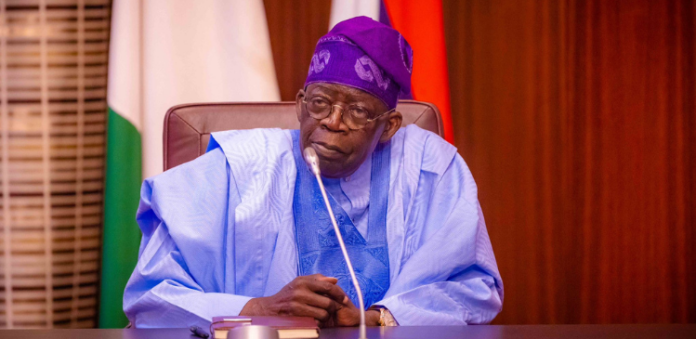On Monday, October 23, 2026, Nigeria’s President, Mr Bola Tinubu, told a group of businesspeople during the Nigerian Economic Summit (NES) in Abuja that the country’s gross domestic product (GDP) or economy could grow to $1 trillion by 2026.
“Distinguished audience, a $1 trillion Nigerian economy is possible by 2026 and a $3 trillion economy is possible during this decade. We can do it with double-digit, inclusive, sustainable and competitive growth,” he said.
However, how possible is this assertion? Economy Post interrogated it with data and found that it was another unrealisable promise.
The wild goose chase
Like several leaders, Mr Tinubu was confident that the Nigerian economy would become much bigger than it is.
But can all the Tinubu’s hopes be realised within his time frame? Postlytics, Economy Post’s data unit, answered the question.
The size of the Nigerian economy or GDP is $441 billion, according to the World Bank 2022 data. For Mr Tinubu to grow the Nigerian economy to $1 trillion, he will need to increase its current size 2.3 times.
By simple analysis, he must ensure that the economy grows by 42.2 percent in 2024, 2025 and 2026. If the country adds 42.2 percent growth ($186.102bn) every year in 2024-2026, the economy will hit $1 trillion.
In the last six quarters, the Nigerian economic growth has averaged 2.72 percent. With the target being to achieve 42.2 percent growth every year in 2024-2026, it means the economy or GDP growth must grow 16 times faster than it is currently doing. Hence the current average growth must quicken 16 times to achieve Tinubu’s target. 
On the other hand, can Nigerian economy hit $3 trillion in 10 years? For the Nigerian economy to hit $3 trillion in 10 years, the economy must multiply itself 6.8 times.
READ ALSO: Tinubunomics: Naira loses 48% value, economic team struggles
In terms of growth, it will need to grow by 60 percent from the first year to the 10th year to achieve this target – other things remaining equal. If the country adds 60 percent growth ($264.6 billion) in the first to the 10th year, it will hit $3 trillion or a little more.
With the average economic growth being 2.72 percent, the Nigerian economy must grow 22 times faster than it is currently doing to achieve that target.
“Have you ever seen any nation which grew by over 40 percent or 60 percent consistently in 10 years in your life time?” a Lagos-based economist, Mr Emmanuel Bisola, asked. “It is just one of those political promises, and I am not sure the president understands what it takes to achieve that.”
A near impossibility
To understand how easy or difficult it is to achieve Tinubu’s target, it is important to understand the global economic growth trajectory.
READ ALSO: After World Bank facility, Tinubu eyes new loan, debt hits N88.6trn
Among all the fastest growing countries globally, only one has exceeded 9 percent growth rate in recent times. India, one of world’s fastest growing countries, recorded between 7 and 8 percent growth rate in the first and second quarters of 2023, according to S & P Global. Projections for other countries in 2023 include: Bangladesh (6.52 percent), Rwanda (6.48 percent), Vietnam (5.68 percent), China (5.28 percent), Egypt ( 4.48 percent), among others, according to Yahoo Finance.
In the world, only one country has achieved an unprecedented growth. Guyana reported 27 .14 percent growth in the last five years and 62.3 percent in 2023 so far, according to the International Monetary Fund (IMF), as reported by Yahoo Finance.
However, it did not maintain up to 40 percent growth in three years or 60 percent in 10 years as Tinubu is targeting.
Lack of reforms is a major drawback
Beside data, achieving extremely high growth rates in Nigeria is difficult owing to lack of reforms in several sectors, corruption, lawlessness and wastefulness.
President Tinubu currently maintains 10 presidential aircraft and shows no desire to merge 1,484 ministries, departments, agencies and corporations of the government in spite of the rationale to do so. This costs the country huge revenues and robs the people of solid infrastructural facilities, analysts say.
READ ALSO: Exclusive: NNPC spends N17trn on refineries’ turnaround maintenance in 20 years
The National Assembly members recently received N68.52 billion worth of vehicles in spite of the hues and cries by several sections of the country.
Economy Post reported exclusively on October 17 that it cost the Nigerian National Petroleum Corporation, now the Nigerian National Petroleum Company Limited (NNPCL), nearly N17 trillion to carry out turnaround maintenance on its three refineries in 20 years.
“If you want to achieve $1 trillion economy, you do not see the National Assembly buying cars worth N68 billion and pretending as if the poor were not suffering,” said Arise News Analyst, Mr Chika Mbonu, at a programme on Tuesday.
“You do not see insecurity or manufacturers suffering because of foreign exchange. Our oil production is struggling to rise above 1 million barrels a day, and state governors are building empty airports,” he added.




